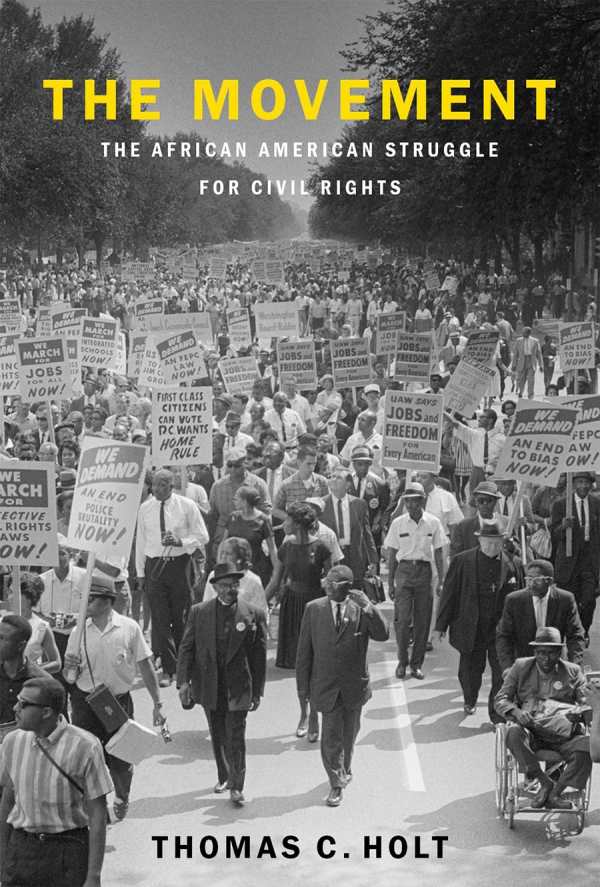The Movement
The African American Struggle for Civil Rights
Thomas C. Holt’s civil rights history text, The Movement, takes care to include Black women leaders alongside its more familiar names.
Beginning with 1930s and 1940s political strategizing, this book covers familiar civil rights events, like a silent parade through Manhattan to protest state-sponsored violence against Black Americans; the formation of the NAACP; and the aftermath of the Plessy versus Ferguson verdict. But alongside these much heralded moments are those that received less recognition, too.
This provocative history involves thorough analyses of New South cities. Holt’s concept of the New South positions cities like Montgomery and Birmingham, both in Alabama, on opposite sides of the New South border, distinguishing the movement as it was received in the rural South, versus in places where old structures of racial control began to crumble in the 1950s and 1960s.
Holt’s chapters include the stories of women like Irene Morgan, who resisted segregation laws even before the Montgomery bus boycott; though her actions were more spontaneous than similar strategies that came later, they followed a lifetime of indignities. Biographical sketches of Fannie Lou Hamer, Annell Ponder, and Annie Bell Robinson Devine are also included to highlight Black women’s prominence in the Mississippi movement.
Political strategies are covered through figures like W.E.B. Du Bois, who asserted that keeping institutions separated by race would advance equal rights; that view led to DuBois’s resignation from the NAACP, which became vocal in supporting integration. A poll is used to show that Montgomery’s Black population was angered, not just because of racial separation, but because that separation made abuses possible.
Covering less discussed moments from America’s struggle for equality, The Movement is a nuanced history that takes layered ideologies and obscured figures into account.
Reviewed by
Tanisha Rule
Disclosure: This article is not an endorsement, but a review. The publisher of this book provided free copies of the book to have their book reviewed by a professional reviewer. No fee was paid by the publisher for this review. Foreword Reviews only recommends books that we love. Foreword Magazine, Inc. is disclosing this in accordance with the Federal Trade Commission’s 16 CFR, Part 255.

